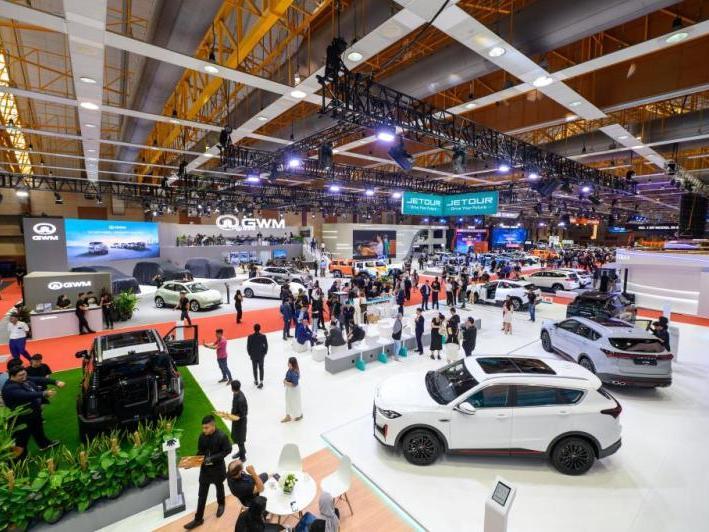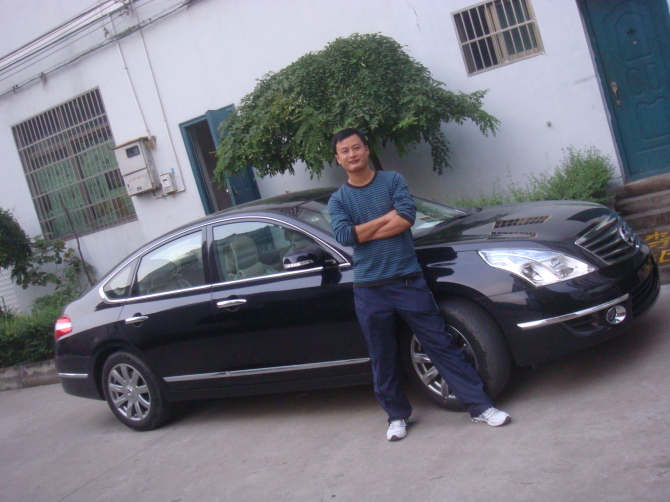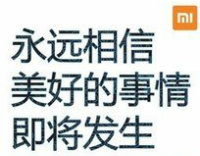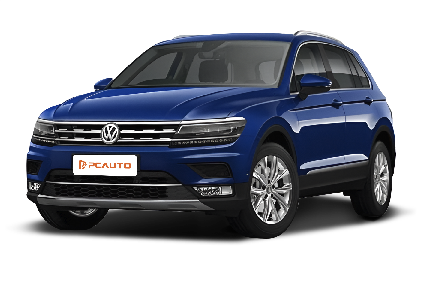Q
What kind of transmission is in the 2018 VW Tiguan?
The 2018 Volkswagen Tiguan in the Malaysian market mainly offers two types of transmissions, namely the 6 - speed DSG dual-clutch transmission (Tiptronic) and the 8-speed automatic transmission (Torque Converter). The specific configuration depends on the model and powertrain version. The 1.4-liter TSI turbocharged engine version is usually paired with the 6 - speed DSG, while the 2.0-liter TSI models may be equipped with a smoother 8 - speed conventional automatic transmission.
The DSG transmission is well - known for its quick gear shifts and fuel efficiency, making it a great choice for owners who pursue driving pleasure. On the other hand, the 8 - speed transmission provides a more linear power output, which is suitable for family users who prioritize comfort. It's worth noting that Volkswagen's DSG technology has gone through multiple iterations, and its stability and durability have been significantly improved. It is recommended that owners change the transmission fluid at intervals of 40,000 to 60,000 kilometers as stipulated by the manufacturer to maintain optimal performance.
In Malaysia's hot and rainy climate, regular maintenance of the transmission is particularly important, which can effectively extend its service life. If you're considering buying a used 2018 Tiguan, it is advisable to confirm the transmission's condition through professional inspection and check if the official recall procedure (if applicable) has been completed. Such information can be obtained through Volkswagen's authorized dealers in Malaysia.
Special Disclaimer: This content is published by users and does not represent the views or position of PCauto.
Related Q&A
Q
What are the different versions of the 2020 VW Tiguan?
The 2020 Volkswagen Tiguan comes in multiple versions, including the 1.4TSI Highline, 1.4TSI UNITED, and 1.4TSI JOIN. These versions perform similarly in many aspects. They are all equipped with a 1.4T turbocharged engine, with a maximum horsepower of 150PS. The official 0-100km/h acceleration time is 9.7 seconds, and the official combined fuel consumption is 6.7L/100km. All of them use front-wheel drive and a DCT gearbox.
In terms of safety features, ABS anti - lock braking, vehicle stability control, lane departure warning, and active braking are all standard. There are also six airbags. For in-car comfort features, a multifunctional steering wheel, steering wheel paddles, a 220V/230V power supply, and keyless entry are all included.
However, there are differences in price. The 1.4TSI Highline is priced at RM 162,678, the 1.4TSI UNITED at RM 166,678, and the 1.4TSI JOIN at RM 172,678. Consumers can make a choice based on their budget and needs.
Q
Why is the check engine light on in my 2020 VW Tiguan?
The engine warning light on your 2020 Volkswagen Tiguan may come on due to various reasons. The most common ones are issues related to the emission system, such as a faulty oxygen sensor, reduced efficiency of the catalytic converter, or an untightened fuel cap. It could also be caused by decreased combustion efficiency due to aged spark plugs, a faulty ignition coil, or an abnormal air flow meter. In the hot and humid climate of Malaysia, moisture in electronic components or carbon buildup may also trigger the warning light.
It is recommended to use an OBD-II diagnostic scanner as soon as possible to read the fault codes and accurately locate the problem. If you can't perform the detection for the moment, you can first check if the fuel cap is properly sealed and observe if there are accompanying symptoms such as vehicle shaking or power loss.
It's worth noting that the engine management system of modern vehicles is very sensitive, and even minor faults will trigger the warning light. Regular maintenance (such as replacing spark plugs every 10,000 kilometers and cleaning the throttle body) can effectively prevent such problems. If the warning light is flashing, you must stop the vehicle immediately for repairs to avoid damaging the catalytic converter. For turbo-charged models like the Tiguan, more attention should be paid to fuel quality and timely oil changes.
Q
How to check mileage on a 2020 Tiguan?
To check the mileage of a 2020 Tiguan, the simplest way is to start the vehicle and look at the digital display on the dashboard. The mileage usually appears near the tachometer or speedometer. For some models, you may need to switch the display information through the multi-function buttons on the steering wheel. If you can't find it, you can refer to the owner's manual to confirm the specific operation steps.
For Malaysian owners, they can also use professional diagnostic equipment at the official authorized service centers of Volkswagen Malaysia to read the vehicle's complete mileage records. This is especially useful when buying a second-hand Tiguan to verify the authenticity of the mileage.
It's worth mentioning that modern vehicles usually store mileage data in the ECU (Engine Control Unit). Even if the dashboard is replaced, the real mileage can still be detected by professional equipment. Therefore, it is recommended to conduct a comprehensive inspection before buying a car.
In addition, regular maintenance records are also an important basis for verifying the mileage. Volkswagen owners in Malaysia can query the maintenance history through the MyVW mobile app or by contacting the original manufacturer to ensure that the vehicle's mileage matches the maintenance records. This is very helpful for maintaining the vehicle's residual value.
Q
How many miles can a 2020 Tiguan last?
Under normal maintenance and usage conditions, the 2020 Volkswagen Tiguan can usually travel 200,000 to 300,000 kilometers or even more. The specific lifespan depends on driving habits, maintenance frequency, as well as the road conditions and climate environment in Malaysia. Regularly changing the engine oil, filters, inspecting the braking system, and maintaining the transmission fluid are crucial. Especially in Malaysia's hot and humid climate, rubber parts and electronic components tend to age faster, so it is recommended to shorten the maintenance cycle to extend the vehicle's lifespan. For turbo-charged engine models, avoiding aggressive driving right after a cold start and regularly cleaning carbon deposits can effectively protect the engine. It's worth noting that German cars have relatively complex electronic systems. If a malfunction indicator light comes on, it should be repaired as soon as possible. Japanese SUVs in the same class may have simpler mechanical structures, but the Tiguan's chassis feel and high-speed stability are its advantages. Malaysian users should also check for rust on chassis components after driving through water during the rainy season and keep the battery charged when the vehicle is parked for a long time. These details can significantly affect the vehicle's service life.
Q
Is the 2020 Tiguan being recalled?
Regarding the issue of whether the 2020 Volkswagen Tiguan has been recalled, there is currently no officially announced voluntary recall notice for this model year in the Malaysian market. However, it is recommended that owners regularly check the vehicle status through the recall inquiry page on the official website of Volkswagen Malaysia or at authorized service centers, as some global recalls may involve vehicles from specific production batches. As a preventive measure, owners can keep an eye on common recall items such as the fuel pump control module or airbags, which have been recalled in some international markets due to potential risks. Malaysian owners also need to pay attention to the impact of the local climate on the vehicle, such as maintaining the electrical system in rainy conditions and regularly changing the brake fluid. If a recall notice is received, owners should contact an authorized repair shop as soon as possible for free inspections and repairs. This not only shows the brand's emphasis on safety but also reflects the protection of the rights and interests of consumers in Malaysia. During routine maintenance, owners can ask the technicians to check for any outstanding recall items to ensure that their vehicles are always in optimal condition.
Q
What is the value of a 2020 VW Tiguan?
In 2020, the value of the Volkswagen Tiguan in the Malaysian used-car market ranged approximately between RM80,000 and RM120,000. The specific price depends on factors such as the vehicle's condition, mileage, configuration version, and maintenance records. Higher-end R-Line models or those with more optional features will be priced higher.
As a popular SUV under the Volkswagen brand, the Tiguan enjoys good liquidity in the local used-car market. It owes this to its solid German-style chassis tuning, the fuel efficiency of its 1.4-liter TSI turbocharged engine, and its practical interior space. It's especially suitable for family users or those who pursue a high-quality driving experience.
It's worth noting that when buying a used Tiguan, it's advisable to first check the smoothness of the DSG dual-clutch transmission's gear shifting and the condition of its mechatronic unit. Also, make sure the original factory maintenance records are complete, as these details can significantly affect the subsequent usage costs.
If the budget is similar, consumers can also compare it with Japanese models in the same class, such as the Honda CR-V or the Mazda CX-5. Different brands have their own advantages in terms of maintenance convenience and parts prices. It's recommended to take test drives based on your own vehicle usage needs before making a decision.
Q
How safe is the 2020 Volkswagen Tiguan?
The 2020 Volkswagen Tiguan performs well in terms of safety. It is equipped with a number of active and passive safety technologies, including adaptive cruise control, lane-keeping assist, automatic emergency braking, and blind-spot monitoring. These features can effectively enhance driving safety in daily driving, especially in Malaysia's complex traffic environment. The vehicle received a five-star rating in the European NCAP crash test, indicating excellent performance in occupant protection. The body structure is made of high-strength steel, which can effectively absorb and disperse collision energy. At the same time, multiple airbags are standard, providing all-round protection for passengers. For Malaysian consumers, the safety configuration of the Tiguan is above average among vehicles in the same class. In particular, its driver assistance systems can help reduce the risks of fatigue driving and unexpected situations. It's worth noting that the safety performance of any vehicle also depends on the driver's habits and regular maintenance. It is recommended that car owners conduct regular vehicle inspections and familiarize themselves with the usage of various safety features to maximize their protective effects.
Q
Is a Tiguan 2020 good for long drive?
The 2020 Volkswagen Tiguan is an SUV that's perfect for long-distance driving, especially performing excellently on Malaysian roads. It's equipped with either a 1.4-liter TSI or a 2.0-liter TSI turbocharged engine, which provides ample power and good fuel economy. This makes it suitable for long-term driving on the North-South Expressway or rural roads.
The chassis is tuned for comfort, effectively filtering out road bumps. Coupled with spacious seats and plenty of legroom, it significantly reduces fatigue during long drives. Moreover, the Tiguan has excellent sound insulation. When driving at high speeds, the noise inside the car is well-controlled. Paired with advanced driver-assistance systems such as adaptive cruise control and lane-keeping function, it further enhances driving safety and convenience.
The trunk has enough space to hold luggage for a family trip. If you often need to travel across states, the 2020 Tiguan will be a reliable choice. It's worth mentioning that the hot and rainy climate in Malaysia places high demands on a vehicle's heat dissipation and air-conditioning systems. The Tiguan's automatic climate control and efficient cooling system can fully handle these challenges. Among vehicles in the same class, its overall performance is quite well-balanced.
Q
Are there any recalls on a 2020 Volkswagen Tiguan?
According to records, the 2020 Volkswagen Tiguan was recalled in the Malaysian market due to potential safety hazards. The recall mainly involved software issues with the fuel pump control unit that might cause the vehicle to stall while driving, as well as possible manufacturing defects in the seat belt pre-tensioners of some vehicles. Car owners can check the specific recall status by entering the Vehicle Identification Number (VIN) on the official website of Volkswagen Malaysia. It is recommended that car owners regularly pay attention to notifications from the Malaysian Road Transport Department (JPJ) or authorized dealers. This kind of recall usually offers free maintenance services.
For Tiguan owners, besides paying attention to recall information, they should also develop the habit of regularly checking the vehicle's maintenance records. In particular, they need to check the oil condition of the turbocharged engine and the software updates of the DSG gearbox. These details can effectively extend the vehicle's lifespan. If you need further confirmation, you can directly contact the nearest authorized Volkswagen service center in Malaysia. They can provide professional vehicle health inspection services to ensure that your car meets the latest safety standards.
Q
What kind of oil does a 2020 Tiguan take?
For the 2020 Volkswagen Tiguan in Malaysia, it is recommended to use fully synthetic engine oil that meets the VW 502 00 or VW 504 00 standards. The viscosity is usually 5W-30 or 5W-40. The specific choice depends on the local climate and driving conditions. In hot and rainy Malaysia, 5W-40 is recommended to ensure high-temperature protection. If the vehicle is equipped with a diesel engine (such as the TDI version), the oil should meet the VW 507 00 standard.
Changing the engine oil regularly every 15,000 kilometers or 12 months is crucial to maintaining the engine's performance. However, if you often drive short distances or use the vehicle under high-intensity conditions, you can reduce the interval to 10,000 kilometers. It's worth noting that the quality of the original-factory oil filter directly affects the lubrication effect. It is recommended to replace the original-factory filter when changing the engine oil.
Although fully synthetic engine oil is more expensive, its excellent oxidation resistance and cleaning ability can effectively extend the engine's lifespan, which is especially suitable for turbo-charged models like the Tiguan. Car owners can refer to the "Engine Oil" section in the vehicle manual or check the markings on the oil filler cap to confirm the specific specifications. If you're not sure, you can also consult the authorized Volkswagen service centers. There are professional after-sales outlets in major Malaysian cities such as Kuala Lumpur and Penang to provide inspection services.
Popular Cars
Model Year
Car Compare
Car Photo
Latest Q&A
Q
Why is gasoline a fuel?
Gasoline can serve as a fuel because it possesses core properties suitable for providing power and the ability to convert energy. It is a hydrocarbon mixture obtained through fractional distillation and cracking of petroleum, mainly containing C5-C12 aliphatic hydrocarbons, naphthenes, and a small amount of aromatic hydrocarbons. It is characterized by volatility and flammability, with low viscosity facilitating smooth flow in injection systems, and rapid evaporation enabling quick formation of a uniform combustible mixture with air. Gasoline stores chemical energy; when ignited by a spark plug in the engine combustion chamber, it burns rapidly to release a large amount of thermal energy, which pushes the piston to move and converts into mechanical energy, providing power for vehicles such as cars and motorcycles. In addition, the anti-knock property of gasoline (measured by octane number) can adapt to engines with different compression ratios, ensuring stable operation and performance; it has a high energy density, storing more energy per unit volume, good combustion efficiency, and high availability of gas stations for convenient use. Therefore, it has become the main fuel for spark-ignition internal combustion engines and is widely used in transportation and related fields.
Q
What are 1st, 2nd, and 3rd family gases?
The first, second, and third family cars are vehicle categories classified based on the stages of family car-purchasing needs. The first family car is an entry-level economical model, such as the Perodua Axia and Proton Saga, priced at approximately 30,000 to 50,000 Malaysian ringgit. It emphasizes fuel efficiency and practicality, making it suitable for young families purchasing a car for the first time. The second family car falls into the mid-range category, offering more space and enhanced features, such as the Proton Persona and Toyota Vios, priced between 60,000 and 100,000 Malaysian ringgit, catering to the comfort requirements of growing families. The third family car is a premium model or an MPV/SUV, such as the Proton Exora and Honda CR-V, priced above 100,000 Malaysian ringgit. It boasts spacious interiors and upscale configurations, ideal for larger families or long-distance travel. Malaysian consumers typically prioritize fuel efficiency, maintenance costs, and space when selecting a vehicle. Families at different life stages adjust their car choices accordingly. For instance, small families may begin with the first category, upgrade to the second after having children, and larger families often opt for the third category.
Q
What are the four types of natural gas?
Natural gas can be classified into four main types based on its source: gas field gas (pure natural gas), associated petroleum gas, condensate field gas, and coalbed methane. Gas field gas is directly extracted from gas wells, typically containing over 90% methane with minimal impurities. Associated petroleum gas is a byproduct of oil extraction, containing not only methane but also significant amounts of other hydrocarbons such as ethane and propane. Condensate field gas yields light hydrocarbon fractions during extraction, characterized by a high methane content and small quantities of heavier hydrocarbons like pentane. Coalbed methane is extracted from underground coal seams, primarily consisting of methane and nitrogen, and must have a methane content exceeding 40% to be utilized as fuel. Due to compositional differences, these natural gas types vary in calorific value and applications. The first three are commonly used for urban gas supply, whereas coalbed methane requires purification before effective utilization. As a clean and efficient energy source, the development and utilization of these diverse natural gas types play a crucial role in optimizing energy structure.
Q
What are the three types of fuel gas?
Common fuel gases are mainly divided into three types: natural gas, liquefied petroleum gas (LPG), and manufactured gas. Natural gas is a flammable gas existing in nature, with methane as its main component. It is colorless and odorless, leaves no residue after combustion, and has high thermal efficiency, making it a clean energy source. Liquefied petroleum gas is a by-product of the petroleum refining process, whose main components include propane and butane. It is a gas at room temperature but can be converted into liquid through pressurization and cooling, facilitating storage and transportation. Manufactured gas is generated through thermochemical reactions of fossil fuels such as coal or petroleum under specific conditions, with main components including hydrogen, carbon monoxide, and methane. It has low production costs but produces certain pollution after combustion, so ventilation should be ensured during use. These three fuel gases have different application scenarios in the energy supply field, and their calorific values and usage characteristics also vary. For example, the calorific value of natural gas is approximately 33,000-36,000 kcal per cubic meter, that of LPG is about 90,000 kcal per kilogram, and that of manufactured gas is roughly 3,500-4,200 kcal per cubic meter. The different calorific values make them suitable for different energy demand scenarios such as households and industries.
Q
Is unleaded petrol a gas?
Unleaded gasoline is not a gas but a liquid fuel. It refers to gasoline with a lead content of less than 0.013 grams per liter and without the addition of tetraethyl lead as an anti-knock additive during the refining process. Its octane rating is typically 95, slightly lower than the 97 of leaded gasoline. The use of unleaded gasoline can effectively reduce emissions of harmful substances such as hydrocarbons, carbon monoxide, and nitrogen oxides in vehicle exhaust, thereby lowering pollution risks including smog, toxic gases, and acid rain. However, it should be noted that while unleaded gasoline contains no artificially added lead, it still retains trace amounts of lead from crude oil. Additionally, its combustion releases gases, particulate matter, and condensates, with particles smaller than 2 microns in diameter being particularly prone to prolonged suspension in the air and subsequent human inhalation. Thus, potential health impacts remain a concern. Currently, most vehicles can use unleaded gasoline directly, though certain models require selecting the appropriate octane grade as recommended by the manufacturer to ensure optimal engine performance and longevity.
View MoreRelated News

Volkswagen ID. UNYX 08 debuted, featuring Xpeng intelligent technology for the first time
JohnDec 24, 2025

Because of lack of funds to upgrade the factory, Volkswagen postponed the release of ID.Golf and ID.Roc
JamesSep 17, 2025

Volkswagen Locks Vehicle Horsepower, Unlocks Full Power via Subscription
JohnAug 19, 2025

Summarizing the 2025 Malaysia Auto Show, a large number of new cars were launched in Malaysia this year.
MichaelMay 12, 2025

Volkswagen ID.Buzz's Bizarre Recall: Third-Row Seats Too Wide, Need to Be Modified
Kevin WongMay 8, 2025
View More


















Pros
Cons